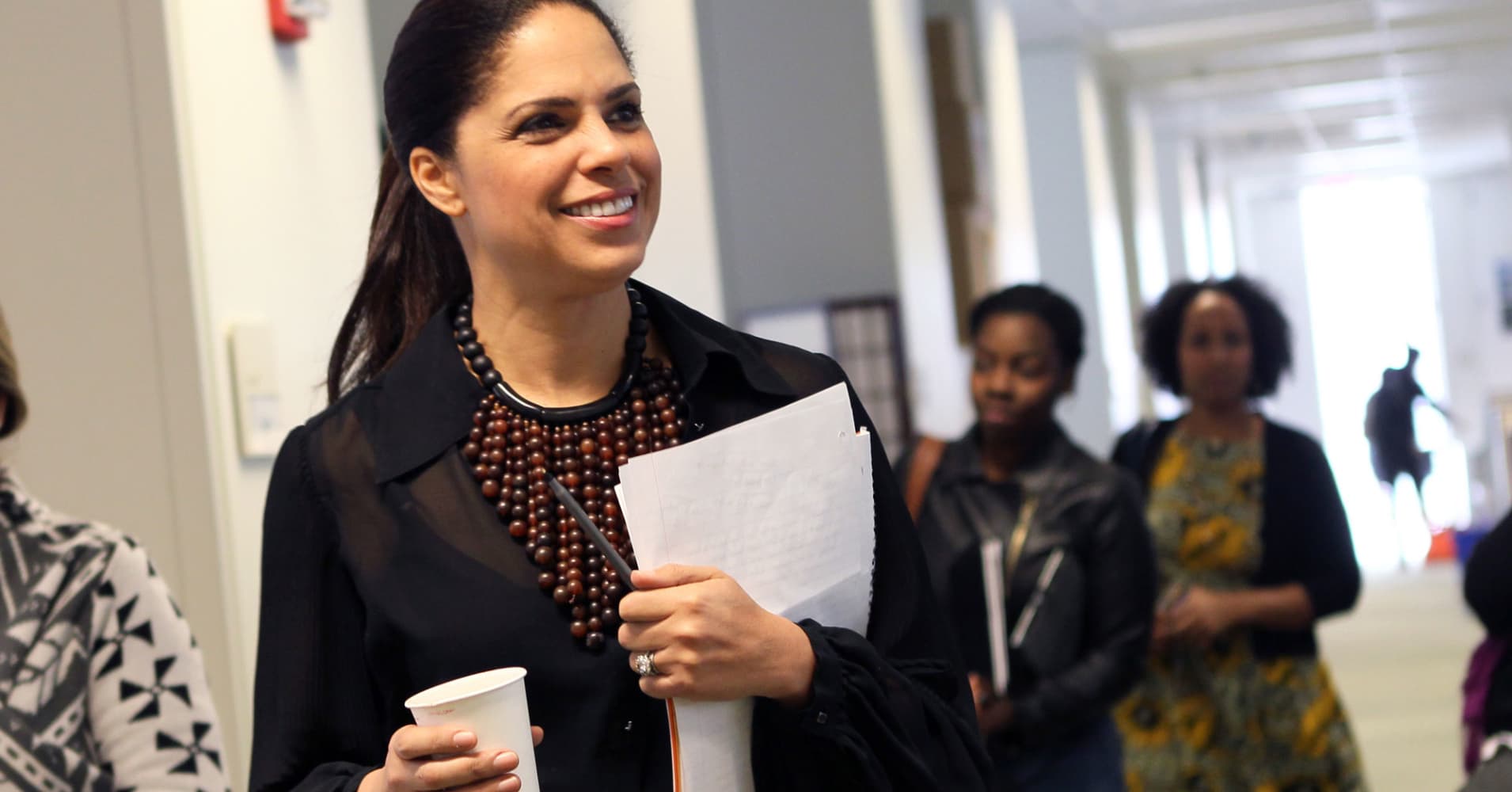The lights pop on. A smiling crowd claps with anticipation. Then, I take the stage all smiles and waves. I'm not anchoring or making a speech or even winning an award. I'm doing one of the most rewarding things I've done yet — teaching a group of young women how to get to and through college so they can step onto their own stage one day, and succeed.
The girls come with impressive agendas. Most are minorities, some children of parents who did not attend college. They are from families without the background to provide guidance on things that are integral to success. One African-American young woman told me: "I was hoping to feel empowered and to maybe learn some skills and techniques about public speaking because I want to practice law and I know that public speaking is really important."
The work is important because even as U.S. high school graduation rates reach record highs, students of color and from low-income backgrounds are still lagging behind their white and wealthier peers. Mentorship has been shown to have significant positive effects on at-risk and underrepresented students, but this ongoing guidance is critical in helping them progress through post-secondary education and training programs and, ultimately, in the workforce. We need more mentors and leaders of color to help shepherd our youth as they navigate the highly competitive job market where coveted skills, access and professional networks are critical to success.
The need is out there. According to the 2017 Building a Grad Nation report, the nation has achieved an 83.2 percent high school graduation rate. Yet, at both the national and state levels, troubling graduation gaps remain between white students and their black and Latino peers. The gap is so severe that, on average, white and Asian students earn a college-level credential at a rate about 20 percentage points higher than Hispanic and black students. Even with affirmative action, blacks and Hispanics are more underrepresented at top colleges than 35 years ago.
In the workforce, people of color struggle to break through in many industries and in leadership positions. For example, white men account for 72 percent of corporate leadership at 16 of the Fortune 500 companies and only 7 percent of partners at law firms are black, Hispanic, Asian or Native American.

